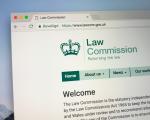Religious Surgery and Children’s Rights
Female genital mutilation (FGM)
Female genital mutilation (FGM) has been illegal in the UK since 1985 and the law was updated in 2003. Despite this, some British girls of Muslim parents are still being sent back to the countries of their parents' origin for this abusive procedure to be done. And, many believe it is even performed secretly in this country. We therefore question why there has not been a single successful prosecution since the practise became illegal. We are concerned that fear of upsetting cultural and religious sensitivities prevents such abuse and bodily harm from being tackled effectively.
Circumcision
All children deserve equal protection under the law, regardless of their gender, and the UK is obliged to ensure non-discriminatory application of its law under Article 14 of the European Convention on Human Rights.Given that female infants are protected from all forms of genital cutting in the Female Genital Mutilation Act 2003, there can be little argument that the same protection ought to be extended to male children.
The principle behind FGM ban was the protection of girls from any form of genital cutting, no matter how slight or what the cultural background of the parent. There is no legitimate basis for denying such protection to boys.
Circumcision is far from risk-free and affects a significant minority of infants. Scarring, infections, pain on urinating and psychosexual difficulties are not uncommon results of ritual childhood circumcision. In one hospital alone in 2011, 11 baby boys needed to be admitted to the hospital's paediatric intensive care unit with serious, life-threatening complications following circumcision. In February 2012, a baby boy died in North London as a direct result of bleeding complications two days after a ritual circumcision.
A statement of the Royal Dutch Medical Association produced along with seven other Dutch scientific associations including the GPs, paediatric surgeons, paediatricians and urologists concluded that the procedure can be harmful and that it violates the boy's human rights to autonomy and physical integrity.
This position was mirrored by the recent German court ruling which found that non-therapeutic circumcision of male children amounts to bodily injury, and is therefore a criminal offence.
We welcome the development that the lawfulness of child circumcision is being increasingly questioned and that medical opinion in a number of countries is similarly turning against the historic carte blanche afforded to infant circumcision on the basis that the parents' freedom of religion is the only consideration. Instead, it is now being recognised more widely that this non-therapeutic procedure for which there are numerous complications, some of which are very serious, is a breach of children's rights.
We reject the claim that a parent's right to religious freedom, entitles them to decide for themselves whether they wish to have this intervention carried out. Denying parents any entitlement to make such a decision does not constitute any limitation of the parents' right to manifest their religion; the child has rights too, not only to religious freedom, but also to the right to physical integrity. This invasive surgery is non-consensual, non-therapeutic, irreversible, unnecessary and not without risk. We argue that It should be postponed until the boy is old enough to give (or withhold) informed consent.
Find out more
 | Protect all children from genital cutting, international NGO urgesPosted: Thu, 5 May 2022 12:13 An international council of experts has called on the United Nations to protect all children from religious and cultural genital cutting. In a report supported by the National Secular Society, the International NGO Council on Genital Autonomy (INGOCGA) has called on the UN Committee on the Rights of the Child (CRC) to work towards "full, equal protection of all minors" from non-therapeutic genital cutting until they are able to make their own decisions about their bodies. Both female genital cutting (FGM) and male circumcision are frequently performed for religious reasons. The report said legal measures against genital cutting upon children have "not happened uniformly" and leave large populations of children "wholly unprotected". While it is generally accepted in legislation that genital cutting of girls is unacceptable in all circumstances, circumcision of male children is "almost wholly unrestrained", it said. The report said the view that genital cutting of a child is a legitimate exercise of parents' religious freedom is a "misconception", as it violates children's own rights to bodily autonomy and freedom to choose a religion or belief identity. It also said the right to manifest beliefs is qualified, and should be restricted if it violates the rights and freedoms of another person. The report highlighted the many possible harms resulting from circumcision, including pain, trauma, sexual dysfunction and serious complications including death. It added that male circumcision "provides no benefits sufficient to justify it under normal circumstances." It said all medically unnecessary child genital cutting "violates several provisions" of the Convention of the Rights of the Child, including the right to protection from all forms violence, the elimination of traditional practices harmful to children, and the child's own right to freedom of conscience, belief and religion. INGOCGA's recommendations to the CRC included:
Report co-author Dr Antony Lempert, who is also chair of the NSS Secular Medical Forum, said: "Genital cutting causes often permanent damage to the genitals, violates the child's right to freedom of religion and belief, and fails to extend to the child the minimum personal rights afforded to adults. As such, it constitutes a harm that is neither justifiable within a modern human rights framework, nor authorised by any qualified rights of the parents. "The disparity in the legal approach to female and male genital cutting is, from a rights and ethical perspective, an unsatisfactory situation, resulting in unequal treatment of vulnerable citizens, discriminatory legislation offering unequal gender protection, and serious breaches of the rights of millions of children annually. "We therefore urge the CRC to work to ensure all children, whatever their sex, are equally protected from all forms of non-therapeutic genital cutting, whatever the religious or cultural justification". The NSS is holding a free online event on June 8 to mark the launch of the report – find and more and book your place. Notes
Image: esudroff, Pixabay. |
 | NSS raises “serious” free speech concerns in press regulator codePosted: Mon, 4 Apr 2022 13:29 A press regulator's standards code may restrict free speech and distort reporting through pro-religion bias, the National Secular Society has warned. The NSS has said it is "extremely concerned" that the standards code and guidance of the Independent Monitor for the Press (IMPRESS) will "unnecessarily restrict freedom of speech regarding religion". IMPRESS is consulting on revisions to its standards code, which aims to protect the public from "unethical news reporting". All IMPRESS members must adhere to the code. IMPRESS members include the Islamic publications 5Pillars UK and The Muslim News. FGM and religion A new clause in the guidance says publishers should "avoid conflating religious, ideological or cultural practices or beliefs" and should acknowledge when there is "controversy" about how a practice or belief is described. It gives the example of female genital mutilation (FGM), which it says is "often incorrectly written about as a religious practice when it is, in fact, a cultural practice". In its submission to the consultation, the NSS said it had "serious concerns" about this guidance, calling it "ill-conceived, inaccurate and highly likely to result in distorted reporting and censorship on religious issues". It said whether a practice or belief is 'religious', 'ideological' or 'cultural' is "never straightforward". This includes FGM which is sometimes practised for religious reasons. The NSS cited examples of Islamic schools which encourage the practice. It said: "Preventing journalists from pointing out that religion is often an important motivation behind FGM not only distorts the truth – it also undermines efforts to end this atrocious form of violence against women and girls by understanding and tackling the root motivations". It said the guidance "will be used to try and silence negative stories regarding religion". The guidance says if there is doubt as to whether a practice or belief is religious, ideological or cultural, "publishers may wish to seek appropriate guidance from relevant experts before publishing the content". The NSS warned this may prompt journalists to approach religious leaders for advice, who are "often strongly motivated to portray their religion in a positive light" and may not provide an objective viewpoint regarding controversial practices and beliefs. 'Burn in hell' The guidance says publishers "must not encourage hatred or abuse against any group based on their protected characteristics". But it has an exception for "threats" against certain groups to "burn in hell", which it said "should not be seen as language that encourages hatred". The NSS said it "cannot comprehend" why the code permits publishers to say gay people or other groups should "burn in hell", but does not allow publishers to say FGM is a religious practice. It said a threat to 'burn in hell' is "an extremely strong expression of hatred" and would "exempt religious forms of hate speech where other forms would be rightly prohibited". Many incidents involving religious threats to 'burn in hell' have been investigated by the police as hate crime. The NSS expressed concerns about other aspects of the code and guidance which may censor reporting around religion, including an implication that the terms "extremist Christians" and "radical Islamists" may breach the code. It welcomed aspects of the guidance that acknowledged the importance of free speech, including the freedom to criticise religion, but said other clauses in the guidance "may conflict" with this and "must be addressed to ensure freedom of speech on topics that engage religion or belief". NSS comment NSS head of policy and research Megan Manson said: "News publishers should never publish with the intention of encouraging hatred or abuse. We all have a responsibility to help foster tolerance and cohesion in our society – not least news publishers. "But the IMPRESS code and guidance will potentially distort or censor reporting on issues relating to religion. This will make it harder to hold religious organisations to account when they themselves encourage hatred or abuse, or otherwise cause harm." IMPRESS's consultation closes on Friday. Its new code will be published this summer. Image: fancycrave1, Pixabay. |
 | Recent studies agree: the risks of circumcision outweigh any benefits. It’s time to rethink our permissive approach to genital cutting.Posted: Mon, 31 Jan 2022 14:41 Dr Antony Lempert says the findings of two recent medical papers critical of infant circumcision should prompt us to greater protect children from religious and cultural genital cutting. Two recently published medical articles have highlighted the dangers of the most common surgical procedure worldwide – and one that is performed almost exclusively for religious or cultural reasons on children too young to consent. Infant male circumcision is widely acknowledged to be a non-therapeutic (i.e. medically unnecessary) procedure which is not actively recommended by any medical association in the world. There are nonetheless many claims that it does confer some medical benefit on children and men, or that it is at least harmless. Medical benefit is often hailed as a coincidental advantage by religious leaders who wish to protect their traditional forced genital cutting practices from criticism or limitation. But these two articles demonstrate otherwise. The first, by Matthew Deacon and Gordon Muir and published in Nature, analyses the evidence behind the most common claims of the apparent benefits of circumcision, such as preventing urinary tract infections, sexually transmitted diseases and penile cancer. It picks out the flaws in previous studies sometimes cited as proof of these supposed benefits, and finds that most are generally outweighed by risks. Complications that can result from circumcision, the review paper finds, include bleeding, infections and impaired sexual function, in addition to the excruciating pain the procedure inevitably causes. The article concludes: "From the perspective of the individual boy, there is no medical justification for performing a circumcision prior to an age that he can assess the known risks and potential benefits, and choose to give or withhold informed consent himself." The second article, published in European Urology Focus, finds from research at a Canadian hospital that the risks of neonatal circumcision are "greater than generally assumed". From 2000-2013, 19 previously healthy newborn babies were admitted for acute complications following circumcision. Eight boys required surgery, three for severe bleeding. Seven were admitted to an intensive care unit, and two of these died. Because circumcision is unregulated here, little data on complications is available in the UK. But the evidence that does exist is consistent with these findings. In 2011, Birmingham Children's Hospital admitted 11 baby boys to the paediatric ICU with life-threatening complications from circumcision. The potential for such complications might be considered an acceptable risk of surgery performed to treat medical problems. Yet when the surgery is performed on a healthy, non-consenting child who has not yet had the opportunity to experience sex with intact genitals, there are no substantive arguments to justify placing that child at risk of such serious harm. It is a singular anomaly that non-therapeutic circumcision continues to take place despite lack of a medical indication or even evidence of overall benefit. This turns medical practice and child safeguarding on its head. Most medical interventions start with an evidence base of benefit before even considering the risk/benefit ratio; the information is subsequently offered to patients who can then make an informed choice. Children are usually given special safeguarding protections because of their vulnerability. In practice this means parents can consent on behalf of their child, in the child's best interests, to medically necessary procedures recommended by doctors. For obvious reasons, parents do not usually have the right to demand that doctors or others perform medically unnecessary surgical procedures on their children. There is no medical, ethical or child safeguarding reason why ritual genital cutting of male infants and small children should be the sole exception to this rule. Rather, there is every reason to treat ritual male circumcision of non-consenting children as a significant safeguarding concern. Most people cherish agency over their own body, especially their genitals. Intact men recognise their foreskin as a sensitive, functional, erotogenic intimate part of their body; it would be a serious sexual assault to surgically remove the healthy foreskin from a non-consenting adult man. That society values autonomy so much that we permit people to refuse even life-saving surgery, for example the removal of cancerous limbs, only serves to highlight the unjustifiable contrast between the rights of adults and the lack of protection afforded to male babies, children and the adults they will become. These two latest papers add to a large and growing body of evidence that cutting healthy parts off the genitals of non-consenting, vulnerable people is not medically justifiable and can cause serious harm. There can be no justification for more children to be subjected to this procedure, which is usually requested by parents to concord with the parents' religious or cultural affiliations. Wounding children without an explicit medical reason will usually result in child safeguarding procedures and sometimes to prosecution of the perpetrators. Ordinarily, religious or cultural reasons will not serve as an excuse. The courts have consistently ruled that ritual scarification, flagellation and the cutting of female genitals (FGM) on children cannot be justified even if they are central to the religious or cultural beliefs of the child's parents or community. Yet no jurisdiction in the world prohibits the painful, risky and permanent procedure that is circumcision from being performed on young male children. While some jurisdictions, notably Iceland, have attempted to ban non-therapeutic infant circumcision, intense lobbying from religious groups has thus far proved an insurmountable barrier. Things need to change. While we continue to give free rein to individuals to perform circumcision on babies without medical need, we're failing the thousands of boys who would have otherwise refused this lifelong modification to their bodies. And, saddest of all, we'll continue to see babies die wholly preventable deaths from a wholly unnecessary procedure. Image: StockSnap, Pixabay |
 | Religious privilege causing injustice, NSS tells Law CommissionPosted: Wed, 4 Aug 2021 14:23 The National Secular Society has argued that religious privilege creates inconsistencies and unfairness in laws on education, charity, health and animal welfare in response to a consultation. The NSS has submitted evidence on these issues to the Law Commission, which has sought views on what should be included in its latest programme of recommended legal reforms. The commission is a statutory independent body that keeps the law of England and Wales under review and recommends reform where it judges that it's needed. NSS recommendations The NSS said the commission should consider:
Law on collective worship Sections 70 and 71 of the School Standards and Framework Act 1998 require that all state-funded schools in England and Wales "shall on each school day take part in an act of collective worship". Even in schools with no religious designation, the worship must be "wholly or mainly of a Christian character". The NSS's submission said this law was incompatible with human rights laws and the principle of equality, and opened the door to inappropriate external evangelism in schools. Charity law In laws on charity throughout the UK, 'the advancement of religion' is a recognised charitable purpose in its own right. The NSS's submission said removing this would ensure greater fairness and mitigate the damage that harmful religious organisations cause. The NSS made the case for removing 'the advancement of religion' as a charitable purpose in a report, For the Public Benefit?, published in 2019. Religious organisations would still be able to register for charitable status under another recognised charitable purpose, as many already do. Genital cutting The NSS's submission called on the commission to consider the disparity between the protections afforded to boys and girls regarding autonomy over their genitals. It noted that boys are not given explicit protection from non-consensual, medically unnecessary circumcision or other modifications to their genitals. It said this was incompatible with human rights law and left many at risk of serious harm. Animal welfare The society highlighted the religious exemption from animal welfare laws that allows animals to be slaughtered without stunning according to Jewish and Muslim rites. There is widespread consensus among veterinary and animal welfare groups that it's more humane to stun an animal before slaughter than not to do so. The NSS argues for the repeal of the religious exemption, and for the labelling of meat from animals subject to non-stun slaughter while the exemption remains in place. Assisted dying law The NSS also called on the commission to draft a legal framework for assisted dying, to guide potential legislation. The society said a disproportionate level of influence is granted to religious groups in debates on assisted dying, and argued that the views of the general public, professionals and relevant organisations should be fairly reflected at policy level. It said a framework could help to guide the government into formulating compassionate and safe legislation to allow for assisted dying under certain circumstances. NSS comment NSS head of policy and research Megan Manson said: "Our reforms identify several significant ways in which religious privilege within the law causes inequality, injustice and harm. "Deference to religion has helped to create outdated, unfair and often unnecessarily complex laws in these areas. We hope the Law Commission will consider our recommendations as it outlines its next programme for reform." About the Law Commission's review
Image: Jarretera / Shutterstock.com. |
 | All children should have the right to refuse circumcisionPosted: Fri, 25 Jun 2021 12:50 A judge has ruled that a boy who was taken into care shouldn't be subjected to non-consensual, non-therapeutic genital cutting. This is welcome, says Megan Manson - but every child should have similar rights. A court has just ruled that a toddler taken into care should not be circumcised, despite the wishes of his Muslim parents. A one-year-old boy known as "P" was removed from his parents at birth, following concerns about abuse. He was placed in the care of his maternal aunt and uncle, who are not Muslim and who have agreed to look after P throughout his life. In November, P's mother, with his father's support, sought the court's authorisation to have P circumcised before his second birthday. However, the local authority and the child's carers disagreed. Justice Cobb concluded that the decision to circumcise P should be deferred until he is "able to make his own choice, once he has the maturity and insight to appreciate the consequences and long-term effects of the decision". This ruling is very welcome. The judge has thankfully protected P's bodily integrity and his personal freedom of religion or belief, rightly siding with the local authority and P's aunt and uncle who think this decision should be for P alone when he is ready. But there are some troubling elements in the judgment that suggest, had some of the circumstances of the case been different, the decision may have gone the other way. While it's a relief that the judge ruled in favour of P's human rights, parts of the ruling indicate the need to reconsider the place of infant circumcision in law and society. #1 Why use a pro-circumcision doctor for expert evidence? The judge used expert evidence from consultant urologist Altaf Mangera. Mangera is himself a Muslim, and it appears he was chosen specifically because he could "speak as to the religious importance and timing of the procedure". Unsurprisingly, Mangera gave the opinion that if the court feels P "should be raised as a Muslim child", his parents "should be given the same rights as all other Muslim families; which is to have a circumcision at a young age". Mangera also referred to the "suggested benefits" of circumcision. To his credit, Mangera also acknowledged that there is "divided medical opinion" about the supposed benefits of circumcision, and said that if there was any doubt as to whether or not P would be raised Muslim, the court "may wish to delay the procedure". But the fact that a urologist appears to have been chosen as an expert on the basis of his Islamic faith is a problem. Surely a urologist consulted to provide a medical opinion on circumcision should give just that, without any religious ideology attached? It appears medical advice given to the local authority was rather different. The LA said it "defers to the medical advice in that unless it is medically necessary that [circumcision] is something that we would not support". This would suggest the local authority's advice took a considerably less favourable stance on infant circumcision. #2 To what extent should the "strongly held views" of parents be considered? The mother's representative argued that the parents' "strongly held views" should carry "considerable weight", which formed part of the judge's guiding principles in his ruling. But to what extent should these override the interests of the child? As the judge pointed out, it is hard to ascertain P's wishes and feelings on the matter given that he is only a toddler. And yet we can draw reasonable conclusions from Mangera's description of circumcision as to how he would be likely to feel about the procedure. Mangera said circumcision for young children requires them to be restrained; not something you would require in a painless and risk-free procedure, one imagines. The judge acknowledged that circumcision would be "painful and distressing to P for a number of days or weeks". For the operation typically used for children older than two, the "most difficult factor" to deal with is "fear of the injection or the procedure", and the recovery period "would be longer". Furthermore, both parents expressed that they would like P to be circumcised now because later he may choose not to, as he would be "deterred by the likely pain and discomfort". The judge also acknowledged that circumcision later in life would "require greater cooperation from P". It isn't hard to conclude from this that even though P is incapable of truly understanding the implications of circumcision or communicating his feelings, he would be unlikely to want to go through with it. It's also not hard to conclude that the parents want P to have the procedure now partly because he is incapable of resisting. If evidence suggests that P is more likely than not to be distressed by a medically unnecessary and permanent procedure, and to refuse it as soon as he is old enough to do so, should the feelings of the parents really trump the child's? #3 Does the Children Act need some revising? Much of the judge's decision appeared to hang on Section 33 of the Children Act 1989, a piece of legislation designed to protect children's welfare. The specific section of the act quoted by the judge says: "While a care order is in force with respect to a child, the local authority designated by the order shall not cause the child to be brought up in any religious persuasion other than that in which he would have been brought up if the order had not been made." This is no doubt intended to prevent children from being indoctrinated into a religion different to that in which they were raised, which could create tension and hostility between parents and carers. However, P's case highlights problems with this law. Although P has lived with non-Muslim carers since birth, Section 33 appears to place a duty on local authorities to ensure the carers raise P within his parents' Islamic religion. The carers have in fact been doing this; in contrast, P's parents have done nothing to support raising P in their religion, apart from insist that he be circumcised. The judge said it is "important that P retains, and is allowed to develop an interest in, the profound and rich tenets of the Islamic faith". The word "retains" here in particular raises eyebrows. It assumes that P has somehow internalised the tenets of Islam by virtue of being born to Muslim parents. And what if, at a young age, P decides he isn't interested in Islam, or he prefers to emulate his aunt and uncle's beliefs? Does Section 33 still compel the local authority to continue teaching him about Islam, and prohibit the carers from letting P share in their beliefs? This would effectively inhibit children in care from exploring different beliefs and making up their own minds about what to believe. Thankfully, the judge determined that Section 33 does not require the local authority to hand P over for circumcision. But things may have been different if P's parents were Jewish. The judgment noted that although P's circumcision may represent an important component of his religious heritage, circumcision is "recommended not obligatory" in Islam. While circumcision may not be a central requirement in Islam, most Jewish sects consider it an obligation to circumcise baby boys, preferably when they are eight days old. Had P's parents been Jewish, would Section 33 have compelled the judge to rule differently? It would be concerning if the degree to which circumcision is considered a requirement in a religious or cultural tradition is a factor in deciding whether parents should be permitted to circumcise their children. It would lead to people of different faiths being treated differently before the law. And it could potentially open the door to other harmful religious practices being permitted, if it can be demonstrated those practices are sufficiently central to religious teachings. #4 The bigger picture: All children should be protected from non-consensual circumcision P has escaped a painful, permanent and medically unnecessary procedure that is also risky. In the US, where most circumcisions are performed under clinical conditions, over 100 babies die from circumcision complications every year. And in 2011, nearly a dozen infant boys were treated for life-threatening haemorrhage, shock or sepsis as a result of non-therapeutic circumcision at a single children's hospital in Birmingham. There's a deep disparity in the relevant laws protecting children. Girls are protected from all forms of genital cutting, even forms less invasive than typical male circumcision, by the Female Genital Mutilation Act 2003. But there are no laws that protect boys from unwanted cutting to their genitals. This disparity even led to contradictory remarks in the judge's ruling. He said the court will be "slow to conclude that a parent faithfully striving to follow the teachings of their religion is acting unreasonably", but also said it "can never be reasonable parenting to inflict any form of FGM on a child". Parents who do cut their girls' genitals frequently cite perceived religious obligations as the justification. So why do we treat male and female genital cutting differently? The bottom line is this: nobody, regardless of sex or religious background, should be subjected to non-therapeutic genital cutting without their express consent. Certainly, no child should undergo such a procedure while they are too young to give informed consent. P has been allowed to grow up and make the decision to retain or lose his foreskin when he is old enough to do so. All boys should be allowed the same choice. We shouldn't question the right of parents to circumcise their children only when a dispute arises – we should question it in every single case. Image by Esi Grünhagen from Pixabay. |
 | UK quizzed over collective worship law by UNPosted: Thu, 18 Feb 2021 14:13 The UN Committee on the Rights of the Child has questioned laws which require collective worship in UK schools after the National Secular Society raised the issue. The CRC asked what steps the UK is taking to repeal laws requiring daily acts of worship in schools, as part of its periodic examination of children's human rights in the UK. The committee monitors the progress of member states' implementation of the UN Convention on the Rights of the Child. The CRC asked the UK to describe the measures it had taken to "repeal legal provisions for compulsory attendance at collective worship in publicly funded schools", and to ensure children can "independently exercise the right to withdraw from religious observance". The UK is the only Western democracy to legally impose worship in publicly funded schools. Parents have a right to withdraw their children from collective worship, but children cannot withdraw themselves. The NSS highlighted the issue of collective worship in a submission to the CRC in November. The CRC also asked what measures the UK is taking to:
NSS comment NSS chief executive Stephen Evans said: "It's good to see the CRC defending children's right not to have religious rituals imposed on them, and their right to inclusive relationships and sex education. "For too long, religious interference in education has undermined the rights to education, equality and freedom of religion or belief. The UK must take the CRC's requests seriously and urgently address these issues. "But it's disappointing that the CRC has overlooked infant boys in its scrutiny of non-therapeutic genital cutting. All children, regardless of sex, should have equal rights to bodily autonomy and must be protected from painful, permanent and dangerous religious or cultural procedures done to them without their consent." Testimonies in NSS submission The NSS included testimonies from children and parents affected by the collective worship law in its submission. One contributor, who was forced to pray in school, said: "Even at a young age I knew religion wasn't for me. That was my choice to make. It's not up to the state to force religion on anyone. Doing so is a breach of basic human rights." Notes
|
 | NSS urges rethink of laissez-faire approach to male genital cuttingPosted: Wed, 5 Aug 2020 10:32 The National Secular Society has urged the children's commissioner for England to encourage child protection agencies and the government to rethink their approach to male circumcision. In a letter to Anne Longfield, the NSS has said all children should be protected from non-therapeutic genital cutting, regardless of the religion, belief or traditions of their parents. The letter comes in light of an acclaimed recent academic article which argued that the UK's legal approach to male genital cutting was "indefensible" and "must be changed" to protect children. Contents of NSS letter In the letter, the NSS said:
NSS comment NSS chief executive Stephen Evans said: "The children's commissioner has a vital role to play in ensuring children's best interests are properly considered. "We're therefore urging her to use her position to help to tackle a widespread and significant violation of many children's basic rights. Children should have the ability to grow up in their own bodies and make their own decisions about altering them. "Child safeguarding must take precedence over adults' wishes to express their beliefs through the cutting of children's genitals." Support for change The NSS's letter also highlighted growing criticism of the current laissez-faire approach to male circumcision:
Image by PublicDomainPictures from Pixabay. |
 | UK’s approach to male genital cutting is “indefensible”, says expertPosted: Fri, 3 Jul 2020 11:55 The UK's legal approach to male genital cutting is "indefensible" and "must be changed" to protect children, a legal expert has argued in an acclaimed academic article. Dr Kai Möller, associate professor of law at the London School of Economics, said genital cutting is wrong "as a matter of principle" in the Oxford Journal of Legal Studies. His intervention has been called "the most important legal and philosophical article on this topic to come out in years" by a fellow academic with extensive expertise in the field. Möller criticises arguments that suggest male genital cutting (often called 'circumcision') and female genital cutting (often called 'female genital mutilation' or FGM) should be treated differently based on a child's sex. He writes: "The currently dominant view, according to which the common law creates an exception for the case of male genital cutting, has been shown to be arbitrary and indefensible." He says both male and female genital cutting should be rejected based on children's rights to have their bodily integrity "respected and protected". 'Religious freedom' arguments Möller says the argument that male genital cutting should be allowed because it is often performed for religious reasons while female genital cutting has no religious basis is "unconvincing". He says neither form of genital cutting can be justified from the perspective of religious freedom because the "right to manifest one's religion can, and in some scenarios must, be limited when this is necessary to protect the rights of others". He also notes that female genital cutting is "in many contexts seen as a religious duty". "Insufficient" justification for treating male genital cutting differently Möller says legal justifications for treating female and male genital cutting differently which have been provided by courts are "insufficient". In the UK, female genital cutting is a criminal offence while male genital cutting is in principle legal and may even be ordered by a court, he says. Möller says some forms of male genital cutting are more harmful than forms of female genital cutting that are prohibited. In 2015 a judge observed that some practices considered to be illegal FGM, "for example, pricking, piercing and incising", are "much less invasive than male circumcision". By implication, he says, male genital cutting "must be treated as a criminal act under the ordinary provisions of the criminal law". Other key arguments Möller challenges the argument that male genital cutting confers health benefits whereas female genital cutting does not, saying there is an "obvious disproportionality between harms and benefits" in the case of male genital cutting. He says arguments that female genital cutting is less acceptable than male genital cutting because the former is done in order to oppress women are "highly controversial". He argues many women who have undergone female genital cutting dispute this claim, and that "any argument that relies on the idea of patriarchal oppression works only if we accept that there is something wrong with male and female genital cutting in the first place." Reaction Brian Earp, a researcher at the Oxford Uehiro Centre for Practical Ethics, called Möller's article a "must read" and "the most important legal & philosophical article on this topic to come out in years" in a recent Facebook post. Dr Earp has also criticised non-consensual genital cutting, including in speeches to National Secular Society conferences in 2018 and 2019. NSS head of policy and research Megan Manson said: "This article makes a solid case for treating religious and cultural genital cutting in infants and children as impermissible under UK law, regardless of a child's sex. "Dr Möller dispels many of the myths and presumptions that have led to the current inconsistency in how we protect the bodily integrity of girls and boys. He makes it clear that religious beliefs, no matter how strongly held, can never justify the permanent and painful alteration of a child's genitals, regardless of their sex. "Policy-makers concerned with protecting the rights of children must take note." |
 | Protect all children from ritual genital cutting, NSS tells UNPosted: Tue, 17 Mar 2020 12:09 The National Secular Society has formally called on the UN Human Rights Council to ensure that protections from forced genital cutting encompass all children equally. In a written submission to the HRC, the NSS said the right to grow up in an intact body "must not be overridden on the grounds of religion, tradition or culture". The submission said: "Child safeguarding must take precedence over the desire of adults within a community to express their own or their child's presumed belief through forced cutting of their child's genitals." The NSS also noted that the norms around genital cutting are often subject to a gendered double standard because of the claim that male circumcision is integral to Jewish and Muslim culture. The society urged the HRC and the Office of the High Commissioner for Human Rights to recognise the "irreversible gross violation" of cutting boys' genitals. It described forced genital cutting of boys as "an anomaly in that it is allowed despite the lack of evidence of benefit". "The surgical assignation of a child's genitals with his parents' beliefs is a human rights abuse taking place on an industrial scale in most countries, so much so and for such a long time perhaps that some find it difficult to see." The submission also said:
Explaining the NSS's position, a spokesperson said: "The ritual cutting of children's genitals is an abusive practice which should be challenged and brought to an end. But too often a blind eye is turned on the grounds that genital cutting holds a religious significance for parents or those within religious communities. "Governments and the UN should recognise this and place the rights of the child first, so children have the ability to grow up in their own bodies and make their own decisions about altering them." |
 | The medical profession should protect all children from unnecessary genital cuttingPosted: Thu, 5 Dec 2019 12:00 Doctors in Britain should follow the lead of those who have declared ritual male circumcision a breach of medical ethics, argues Dr Antony Lempert. Whilst sex discrimination has been reduced in many areas of medicine and society, a UK child's protection from medically unnecessary irreversible surgical procedures on his healthy genitals still depends on perceived gender. In 2013, the United Nations committee on the rights of the child categorised ritual circumcision as 'violence against children'. Meanwhile the parliamentary assembly of the Council of Europe expressed concerns about "a category of violation of the physical integrity of children, which supporters of the procedures tend to present as beneficial... despite clear evidence to the contrary", naming "the circumcision of young boys for religious reasons" as one such violation. In 2015 Sir James Munby, then president of the family division of the High Court, noted that some forms of FGM were less severe than the usual form of male circumcision, describing all as constituting "significant harm" as defined by the Children Act. Guidance from the UK medical regulatory body, the General Medical Council, and more recently the main UK doctors' trade union and professional body, the British Medical Association, endorses the double standard. Regardless of the actual harm caused, these organisations say no-one should cut a girl's genitals – but for boys the emphasis shifts to his 'best interests'. And here's the rub. Unlike girls, boys' best interests may apparently include acquiescing to parental wishes to imprint their own strong religio-cultural beliefs onto his genitals before he can form his own beliefs, experience sex with intact genitals or withhold consent. Both organisations have been informed that many men feel harmed, and some boys have suffered irreparable penile damage and even death. They know that there are growing movements from within the cutting communities advocating peaceful alternatives. Regrettably, neither organisation has followed the lead of the Danish Medical Association, the combined Dutch medical community, and all the Scandinavian ombudsmen in declaring ritual male circumcision a fundamental breach of medical ethics that should be deferred until the person himself has the capacity to give or withhold consent. Non-therapeutic genital cutting of non-consenting children should all be treated as a significant breach of good medical practice when performed by doctors and as a serious safeguarding concern when performed by lay people – regardless of the perceived gender of the person affected. This is a lightly edited version of a letter which was first published in the British Journal of General Practice. It is reproduced here with kind permission. It was initially posted in response to another article which argued that non-medical circumcision infringes children's human right to decide. |

